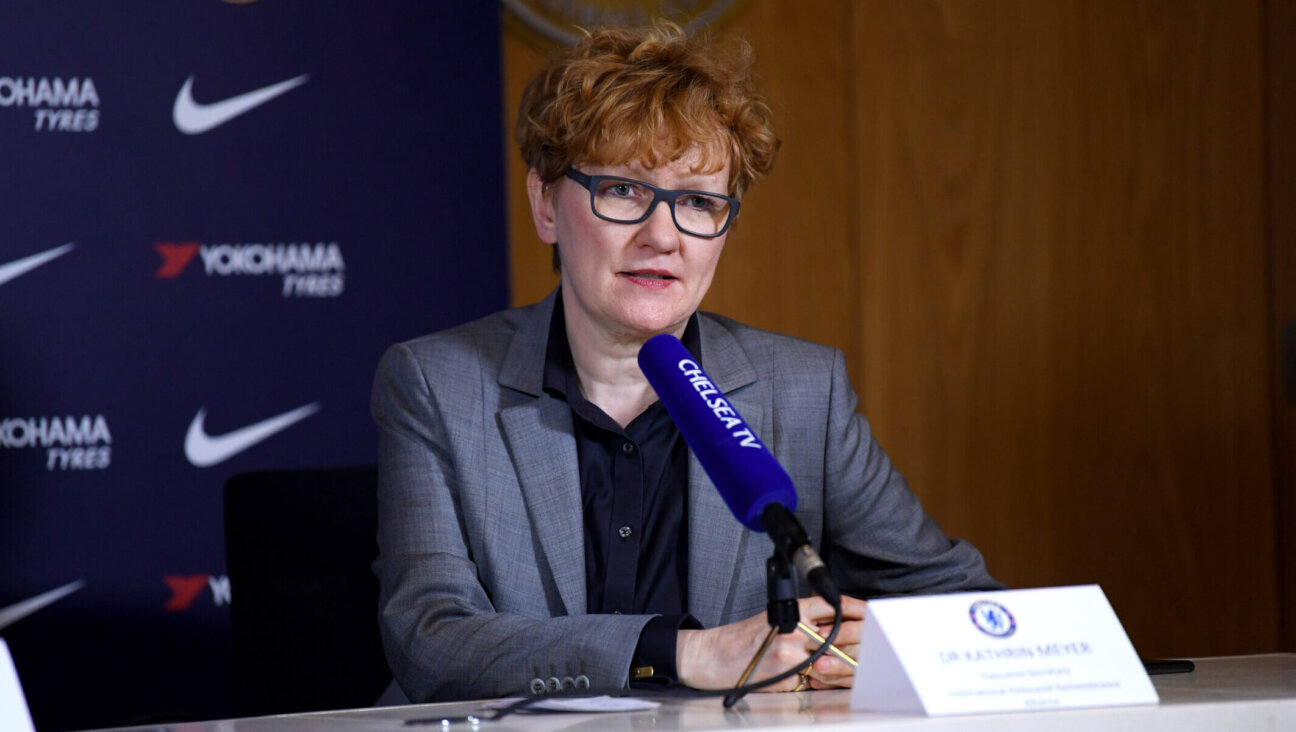Christmas Holiday Sparks Culture Battle
’Tis the season to be jolly?
The unknown composer of that lyric clearly wasn’t living in America in 2004.
This winter holiday season has been anything but jolly for both Christians and non-Christians, as the debate over church-state separation and how America should celebrate the holiday in the public square went from simmering to boiling practically overnight.
The result has been increased anxiety for Jewish parents who send their kids to public schools, and increased frustration by Christians who feel that their right to publicly celebrate the birth of their Lord is being trampled on.
The raging debate is attracting pointed comments from both high-profile critics and supporters of Mel Gibson’s “The Passion of the Christ” who sparred over the film, including commentator Bill O’Reilly, a self-described traditionalist, and liberal New York Times columnist Frank Rich.
O’Reilly, a strong defender of Gibson, recently drew criticism from Jewish organizations for telling a Jewish caller that he should move to Israel if he is uncomfortable with public celebrations of Christmas, adding that America is primarily a Christian nation and that the majority also can be offended.
In a discussion on MSNBC about the chances of “The Passion” winning an Academy Award, conservative Catholic activist Bill Donahue, also a Gibson ally, stated: “Hollywood is controlled by secular Jews who hate Christianity in general and Catholicism in particular.”
In a sharply worded December 19 column, Rich slammed Donahue’s remarks and dismissed conservative Christian claims that the holiday season was under assault.
Setting the stage for the rising number of battles over Christmas around the country were comments made last month by Supreme Court Justice Antonin Scalia, at a Catholic lawyers convention in Chicago, and the next day at New York’s famous Spanish Portuguese synagogue, Congregation Shearith Israel — the oldest in North America.
“We are fools, for Christ’s sake,” Scalia said while speaking at a Red Mass, a religious tradition for Catholic lawyers in Illinois. He described the derision that Christians, and more specifically Catholics, suffer at the hands of the “sophisticated” and “wise of the world,” terms that he used with obvious sarcasm.
At the Manhattan synagogue, Scalia dropped the references to Jesus but declared that Jews are safer when church and state are more closely linked.
“Did it turn out that, by reason of the separation of church and state, the Jews were safer in Europe than they were in the United States of America? I don’t think so,” Scalia was quoted as saying.
“The Founding Fathers never used the phrase ‘separation of church and state,’” the justice said. He argued that rigid separation of religion and state — as he claimed is practiced in Europe — would be bad for America and bad for the Jews.
“Do you think it’s going to make Jews safer? It didn’t prove that way in Europe,” he said.
In response, the liberal organization People for the American Way declared that Scalia’s potential nomination as chief justice would be a “disaster” for the nation, accusing the jurist of distorting the historical record.
“Scalia recently suggested that church-state separation existed in Europe and did not make Jews and other religious minorities safer,” said the organization’s president, Ralph Neas, in a statement. “Historically that is exactly backward. Indeed, centuries of history document that the union of church and state has often contributed to the persecution of religious minorities, including Jews. Scalia’s distortion of both history and the law is what makes him so dangerous.”
Scalia’s comments parallel the increased battles across the nation over how Christmas can be celebrated in public parks and schools in a nation that is 82% Christian:
• In Denver, under pressure from conservative activists, the mayor dropped plans to change the public downtown sign from Merry Christmas to Happy Holidays.
• Bishop Jay Ramirez of the Kingdom Life Christian church in Milford, Conn., told a local paper that he believes the historical significance of religious heroes such as Jesus should be discussed in classrooms at Christmas. “Christmas is the celebration of the birth of Christ,” he told the New Haven Register. “If you don’t want to celebrate that, go to work on December 25, but he is the origin of the holiday.”
• A parents group in Scarborough, Maine, launched a campaign to bring Christmas celebrations back to schools in the state. ‘”We just think everyone should be allowed to talk about something this big,’” said parent Lisa Lowry, whose husband, the Rev. Michael Lowry, is the minister at Black Point Congregational Church.
• Attorney Peter Gentala of The Center for Arizona Policy, a conservative family-values lobbying and legal group, sent a letter to public school districts and charter schools in Arizona telling them not to shy away from displaying Christmas trees, singing religious carols or referring to the time off at the end of the month as “Christmas break.”
• In Mustang, Okla., parents and community members protested Lakehoma Elementary’s Christmas performance, forming a living nativity scene across the street from Mustang High School after the nativity scene was cut from the play on the recommendation of the school district’s attorney.
• At Independence Middle School in Jupiter, Fla., principal Gwendolyn Johnson cut four Christian religious songs from the holiday concert, prompting angry parent Judy Franklin to state: “Where do we draw the line when we’re trying to be so politically correct? I think we’re losing our freedom of speech.”
Johnson acknowledged that the songs were cut when interim chorus director Lisa Pontbriand asked her to double-check the program after a female Jewish student complained that all the songs were “Christian.” Three traditional Hanukkah songs were inserted. “Now there is a greater showing of different faiths,” Pontbriand said.
• In Egg Harbor Township, N.J., a school district slashed the traditional Christmas song “Silent Night” from E.H. Slaybaugh Elementary School’s holiday concert program after a parent, who is an attorney, objected to the song because of its religious nature, according to news reports. The unidentified parent withdrew the complaint, but the matter is still under review by the department of education.
Veteran interfaith expert Rabbi James Rudin said the level of polarization over the so-called December dilemma in the country is “worse than it has ever been publicly.”
He said that conservative Christians are feeling empowered by the election of President Bush and are pushing their agenda — a development raising Jewish anxiety.
Kenneth Jacobson, associate national director of the Anti-Defamation League, said, “It’s ridiculous to suggest that Christmas is under attack in America. In a million different manifestations, Christmas is an integral part of American life.” He said the Christian fundamentalists “are succeeding in winning court battles while managing to project themselves as victims at the same time.”
A message from our Publisher & CEO Rachel Fishman Feddersen

I hope you appreciated this article. Before you go, I’d like to ask you to please support the Forward’s award-winning, nonprofit journalism so that we can be prepared for whatever news 2025 brings.
At a time when other newsrooms are closing or cutting back, the Forward has removed its paywall and invested additional resources to report on the ground from Israel and around the U.S. on the impact of the war, rising antisemitism and polarized discourse.
Readers like you make it all possible. Support our work by becoming a Forward Member and connect with our journalism and your community.
— Rachel Fishman Feddersen, Publisher and CEO























